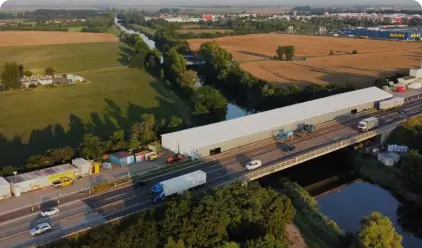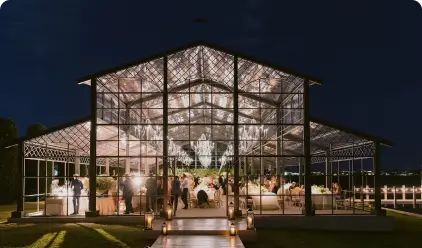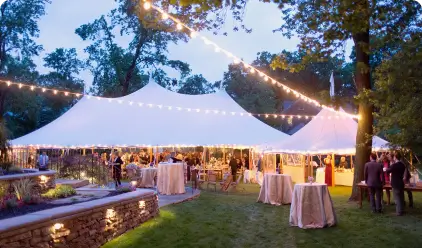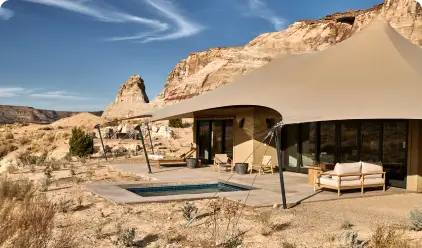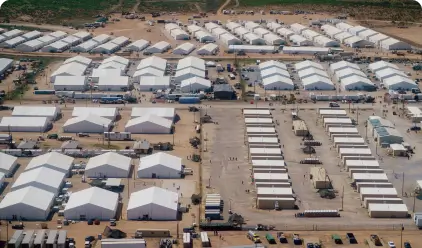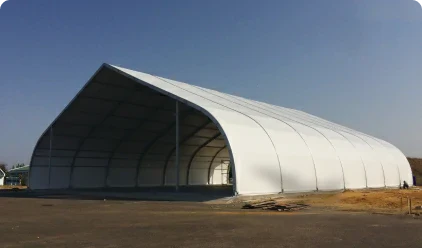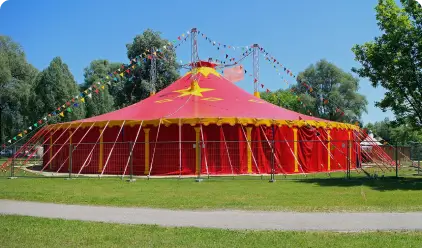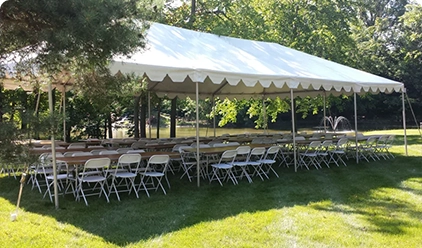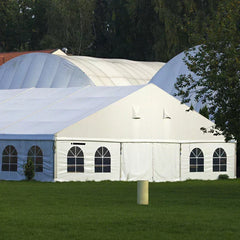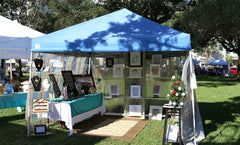How Much Does a Tent Rental Cost | Final Verdict
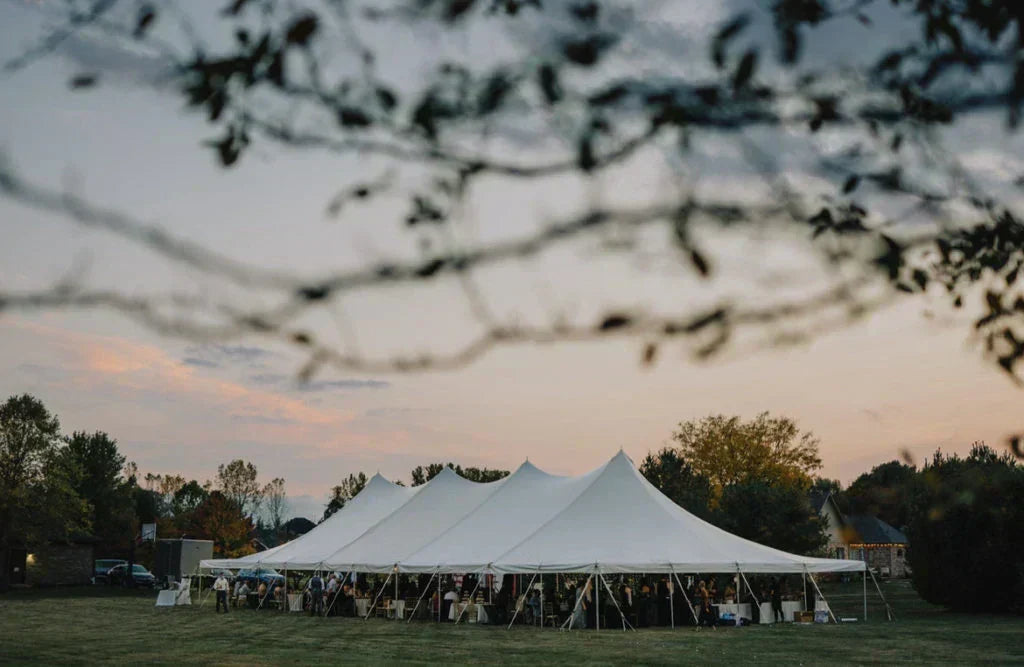
When preparing for an outdoor event, a tent is often an indispensable expense. But many people have a practical problem: just how much does it cost to rent a tent? Because there are so many factors that can affect the tent rental cost, it can be difficult for many people to determine if a rental is cost-effective and worthwhile quickly.
Generally speaking, the average tent rental cost ranges from about $0.75 to $1.50 per square foot. However, this is just a starting point, and the actual cost will vary depending on the size, type, and style of the tent.
In addition to these base costs, there are a number of additional expenses, such as accessories like lights, flooring, and heaters, or factors such as transportation, installation, hours of use, and seasons, which can also affect the total price.
While it may seem like a lot of items, not all of the costs actually have to be included in the budget. Many of the options are based on your actual needs in terms of usage scenarios, weather conditions, time of the year you are hosting, etc., It is advisable to request a clear quotation for items and services when contacting the rental company.
This article will break down each of these costs from your needs to see if they are worth it, as well as give a clear reference on how much does a tent rental cost.
Tent Rental Cost: Start from Your Needs
The most important step before understanding the tent rental cost is to figure out your actual needs. Different usage scenarios and budget goals will take you in completely different directions when choosing tents and services. You can start thinking about the following questions:
- How Many People Are You Planning to Invite?
A small gathering of 50 people will typically require a 600- to 800-square-foot tent that will cost around $500 to $1,200 to rent. And for an event of 100 or more people, the tent size and price double and could be between $1,000 and $2,500.
- What Is the Tent Going to Be Used for?
Is it a wedding, a corporate event, or a family reunion? Formal events like weddings may also require complementary dance floors, lighting, drapery decorations, etc., and the cost will increase accordingly.
- What Are the Weather Conditions On the Day of the Event?
If it is a hot summer day, you may need to rent additional air conditioning; if there is a risk of rain, you will also need to consider additional protective accessories such as side walls and flooring.
- What Time Is the Event Held?
Off-season rentals are usually cheaper, and additional discounts are sometimes available. If time permits, try to avoid the peak season.
- Where Will the Tent Be Set Up?
Will it be on grass, concrete, or the beach? Different terrains require different tent structures and will affect the cost of installation. Some ground may also require additional reinforcement or flooring.
Being clear on these basic needs will help you quickly get a quote that's closer to reality when speaking with the rental company.
Main Factors Determining the Tent Rental Cost
Once you've clarified your basic needs, it's time to take a look at what factors affect the cost of tent rental. Tent rentals aren't a fixed number and will vary depending on the size, type, length of time you choose to use it, and ancillary services. Below we'll break it down item by item to help you get a clearer picture of how each part of the cost is made up.
Tent Size
The size of the tent is one of the primary factors in determining tent rental cost. The larger the size, the higher the price, because more materials are used and the installation is more complicated.

For example, the most common small tent is a 10x10 tent, suitable for a check-in area, food area, or a small number of guests resting, and usually rents for around $100-$150. A slightly larger 20x20 tent (accommodating about 30-40 people) can cost between $200-$500.
For weddings or large parties, you may need a 30x40-foot tent (tent size for 100 guests) or even larger structured tent, which is usually priced between $1,000-$3,000, depending on whether or not you want to add a dance floor, lighting, air conditioning, and other extras.
Therefore, when you choose the size, you should estimate based on the number of guests and consider the layout, such as whether you need to set up tables, a dance floor, a sound area, a dessert table, and other areas.
Also, don't forget to leave enough aisle space for your guests to have a smooth flow of people. It is recommended to communicate with the rental company in advance about the venue and the plan for its use to avoid wasting the tent if it is too small or too big.
🎈You May Also Like:
7 Tips for Maximizing Wedding Tent Layout
5 Ideal 20x30 Tent Table Layouts for Various Events
How Much Does a 40x60 Tent Rental Cost?
Tent Accessories
Aside from the tent itself, the choice of accessories can also affect the final rental cost. However, whether or not you need these accessories depends largely on the specifics of your event.
For example, if you're planning a wedding or formal party, you may want the site to look more ambient, and that's when you may want to consider adding lights, drapes, and decorations. If you are having an outdoor luncheon in the middle of the summer, the heat may make it difficult to stay for long, so air conditioning or fans may become a must.
Conversely, in the fall and winter or on cooler evenings, many people will rent enclosed side walls or additional heaters to heat a party tent.

Also, if the weather forecast suggests a chance of rain, it's recommended to prepare sidewalls and waterproof flooring ahead of time to prevent the venue from being slippery and interfering with the experience.
Then again, if the venue is grassy, sandy, or an open space with uneven terrain, many choose to put down wooden floors for ease of walking and setting up tables. Generators and portable restrooms also need to be considered if the venue itself does not have power or restrooms.
These accessories are not needed for every event, but they can be useful once venue conditions or weather are less than ideal. It is recommended that you selectively add accessories in conjunction with your specific scenario of use to safeguard the experience and keep your budget in check.
Duration of the Tent Rental
The duration of the rental also affects the tent rental cost. Most tent rental companies provide quotes on a per-day basis, and there is usually little difference between a one-day rental and a rental over a three-day period because the cost of transportation, set-up, and dismantling is included.
However, if you need to set up in advance or the event is longer than the standard rental period, you may be charged extra per day. Therefore, you need to confirm clearly in advance when communicating:
- Whether the time for set-up and dismantling is counted as part of the rental period
- Whether you can extend the time of use free of charge
- How much will an extra day's rental cost?
Types of Tents
When choosing a tent type, price differences often come from design and functionality. The higher-end and more structurally complex the tent, the more expensive it will naturally be to rent.
Like some styles designed for weddings or formal events, with a more elaborate look and sense of space, even with customized decorations, these types of tents are usually quite a bit more expensive than the average traditional tent.

Moreover, some tents play the role of sun and rain and have a closed, insulated support for heavy equipment and other functions. These types of tents are suitable for use in complicated weather or scenes with special layout needs, and the relative price will be higher.
Overall, when picking a tent type, not only should you look at the appearance to see if it matches the style of the event, but you should also consider whether you really need that many extra features.
If it's just a simple party, choosing the basic model will be fine, but if you are pursuing the on-site effect or need to take on multiple uses, you need to prepare your budget accordingly.
Explore Different Types of Tents and Their Costs
There are quite a few common types of tents on the market, and the different structures determine how they are erected, the sites they are suitable for, and the accessories they may require.
All these will directly affect the rental price. Below we pick a few common styles to help you quickly understand their characteristics and applicable scenes.
Pole Tent

Best for: lawn venues, wedding banquets, large parties
The pole tent is a more traditional type of tent, relying on the center poles and several side poles to support the structure, with higher ground requirements, and usually can only be set up on soft ground (e.g., grass, mud) where ground spikes can be driven.
Due to the simplicity of the structure, rental rates are relatively low, but consider that the center column may affect the layout. For stability, a large external anchoring space may also be required, making it unsuitable for installation on space-constrained or hard surfaces.
Pros:
- Classic styling
- Affordable
- Good for large spaces
Cons:
- Center column for limited Layout
- Can't be built on hard surfaces
- Average wind resistance
Frame Tent

Best for: parking lots, various terrain, weddings, and business events.
The biggest advantage of a frame tent vs. a pole tent is that the former has no center pole, making the interior space more free. It is suitable for almost any type of ground and can be fixed with stakes or weights, so it can be set up in the city or on hard ground.
The frame tent has a more solid structure, takes slightly longer to set up, and is usually more expensive than the pole tent, making it suitable for events that require a high level of internal space and flexibility in layout, such as setting up a dance floor, projection, and long tables.
Pros:
- No center column
- Flexible space
- Strong adaptability
Cons:
- Higher cost
- Set up time is longer than the pole tent
- Slightly higher cost of accessories
A-Frame Tent

Best for: Occasions that require large space and barrier-free layout, such as wedding banquets, commercial exhibitions, large corporate events (more than 100 people)
The A-frame tent also has no internal columns, and it adopts a modular aluminum alloy frame structure with a span of up to tens of meters, the length of which can be extended according to demand. This design makes it ideal for scenarios where a dance floor, stage, large exhibits, or long table banquets need to be set up, with high space utilization and no interference from columns.
It is also highly adaptable to the ground and can be erected on different terrains such as grass, concrete, and sand. It is stable and suitable for all kinds of weather conditions. It can also be matched with a variety of accessories such as side walls, air conditioning, lighting, and flooring to meet the needs of the event.
Pros:
- No internal columns, free space layout
- Can be erected over a large area with a solid structure
- Modern appearance, suitable for formal or high-end events
Cons:
- Rental and setup costs are relatively high
- Higher requirements for transportation and installation
- Need to reserve enough time for preparation
Additional Factors to Influence Party and Event Rental Cost
Determining the price of a tent is only part of the budget, and actually putting on a smooth event can involve a range of additional rental services. These don't necessarily apply to every scenario, but depending on the size, location, and season of your event, some costs may be unavoidable.
Knowing about these add-ons will help you assess ahead of time whether the overall expense is manageable.
Equipment Rental
When renting a tent, the equipment needed for the event is often another significant cost. Things like tables, chairs, cutlery, glassware, dance floors, etc. are sometimes not included in the basic tent rental package and need to be rented separately.
It is recommended to double-check if this equipment is included or if there is an additional cost to be paid before confirming the rental contract. Depending on the size and type of event, this overhead can take up a portion of the overall budget.
Transport & Installation Costs
Shipping and setup costs are an often overlooked part of tent rentals, but they actually vary quite a bit. If the event location is far away from the rental company or the transportation is not convenient, the shipping cost will go up.
Some rental packages include installation and dismantling fees, while others are calculated separately; it is best to ask in advance. There is also the ground on which the tent is erected; if it is cemented or paved, you can't directly hit the ground nails; you may have to use a load-bearing plate or special fixing method, which will also cost more.
Season of the Year

The price of tent rental is also affected by the season. Usually in the spring and summer seasons, especially during holidays and wedding seasons, the demand is high and the rent is relatively high, while in the fall and winter off-season, the rental price will drop, and sometimes you can enjoy some discounts.
Furthermore, rental companies may add the cost of additional protective measures during seasons when inclement weather is prevalent.
Possible Damage Waive
In fact, in addition to the basic rental fee, you may also encounter a damage waiver fee. Some rental companies will offer this service, where the customer pays an additional fee and is not responsible for the full cost of repairs if there is minor damage to the tent or accessories.
While this can reduce the worry when using the tent, it can also add to the overall cost. Whether or not to choose this service can be determined by the size and risk of the event.
6 Ways to Save Tent Rental Costs
Many people tend to spend more than expected when renting a tent, which is the last thing you want to happen. For this reason, we've put together some practical tips to help you get a clearer picture of your budget.
Here are a few practical money-saving tips shared for your consideration.
- Choose the right size according to the actual number of people, avoiding extra space resulting in increased costs.
- Avoid peak season rentals and choose off-season or non-popular time periods.
- Streamline accessories and rent only the equipment and decorations you really need.
- Book in advance for rental company discounts or package rates.
- Choose venues with convenient transportation and good installation conditions to reduce transportation and set-up costs.
- Some equipment such as tables, chairs, glassware and decorations can be borrowed from friends or neighbors first to save some of the cost.
Tent Rental Cost Breakdown: Final Verdict
With an understanding of the various factors that affect the cost of tent rentals, here's a concise table of cost ranges to help you get a clearer grasp of the overall expense. Prices for each item will vary depending on location, vendor, and specific needs, and the table is for reference only.
| Cost Factor | Estimated Tent Rental Cost (USD) |
|---|---|
| Tent Size | $150 (Small 10x10 feet) – $2000 (large-scale) |
| Tent Accessories | $50 – $500 |
| Rental Duration | Per diem, usually from 1 day |
| Tent Type | $200 – $2500 |
| Equipment Rental | $100 – $800 |
| Transportation | $50 – $300 |
| Setup & Takedown | $100 – $500 |
| Damage Waiver Option | $20 – $100 |
As an example, if you are hosting an outdoor wedding for about 100 people, choose a medium-sized frame tent and rent it for two days. Then, equipped with basic lighting and sidewalls, simple equipment rental, easy access to the venue, and moderate transportation and installation, the overall cost will be roughly between $1500 and $2500.
It is recommended that you always communicate with the supplier to get a detailed list of quotes before finalizing your rental. You need to be clear about which services are included to avoid paying unnecessary fees.
To Buy or Rent a Tent for a Party?
For most users, tent rental is more suitable for one-time or occasional events, such as weddings, birthday parties, corporate annual meetings, and so on. These types of events require a high level of tent style and setup, while renting can save you the trouble of storage, maintenance, and transportation, as well as the flexibility of choosing the type and accessories you need for different occasions.
However, if you regularly organize outdoor activities, such as an event planning company or campsite operator, or hold large gatherings on a regular basis, it may be more cost-effective to purchase a tent than to rent one. Especially durable and reusable structural tents, which can be invested in once and used many times, can save rental costs in the long run.
If you are considering purchasing a tent, feel free to contact Sheltent to learn more about the various types of specialized tent solutions we offer. We can provide you with the right options and customized support.
🎈You May Also Like:
How Much Does It Cost to Build a Warehouse? (2025)
FAQs About Tent Rental Cost
How Much Does A 100 Person Tent Rental Cost?
For around 100 guests, you’ll typically need a tent size of at least 30x60 feet or larger. The average tent rental cost for this setup ranges from $700 to $1,500, depending on the type of tent, accessories, and regional pricing. If you add sidewalls, flooring, lighting, and furniture, the total could reach $2,000 or more.
What Is Included in the Party Tent Rental Cost for the Package?
It varies by vendor. Some tent rental packages only include the tent structure itself, while others may include basic setup and takedown, sidewalls, or standard lighting. Equipment like tables, chairs, HVAC, flooring, and restrooms is often add-on with separate fees.
How Far in Advance Should I Book a Tent Rental?
It’s best to book at least 2–3 months in advance, especially for events during peak seasons like spring and summer. For wedding tents or large event tents, early booking ensures availability and may help you lock in a better rate.




























